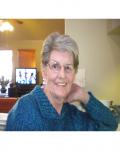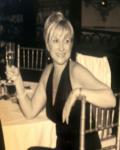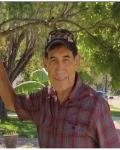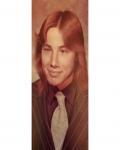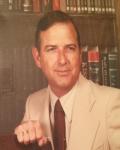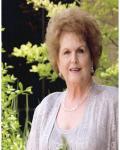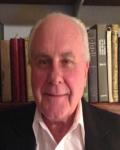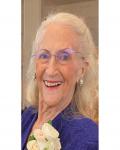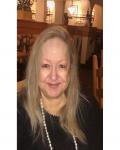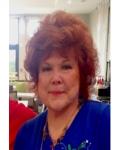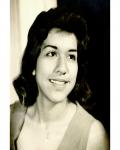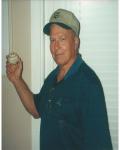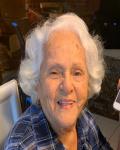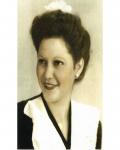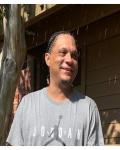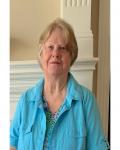Beresford Funeral Home is affiliated with The Pine Box casket store. Both are owned by Chip Beresford. Chip first established The Pine Box with three locations as a way to offer funeral merchandise at a fair price to consumers. He was not very popular with the funeral homes around Houston. Chip then saw a need to offer funeral services at a funeral home that would provide quality services at an affordable and fair price. That is why Chip started the Beresford Funeral Home. Below are some articles from the Houston Chronicle, The Wall Street Journal and USA Today chronicling Chip's efforts to bring quality, affordable funeral services and merchandise to the families of Houston.
From the Houston Chronicle
January 8, 2006
Funeral industry conspiring to keep prices high, suit says
By Harvey Rice
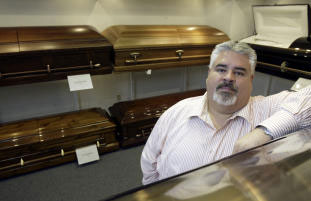 Chip Beresford says he feels torn.
Chip Beresford says he feels torn.
On one hand, he feels loyalty to the business in which he has prospered: the funeral industry.
On the other, he thinks he has suffered an injustice from funeral homes that he says have hurt him because they consider his prices too low.
Now Beresford — owner of The Pine Box in Houston, one of the largest distributors of caskets in Texas — is considering whether to join an antitrust lawsuit that aims to reduce funeral prices nationwide. The lawsuit, if it succeeds, could force the nation's largest funeral businesses to refund billions of dollars to consumers.
Beresford says he has been on the receiving end of some of the anticompetitive behavior alleged in the lawsuit. Some funeral homes that are unhappy about his prices, which often are hundreds of dollars less than theirs, refuse to use his caskets, he says.
"They disparaged me," he said. "They disparaged my product."
Nevertheless, he is reluctant to join casket retailer Pioneer Valley Casket Co., Inc. of Whately, Mass., in a lawsuit that has been combined with lawsuits filed by consumers.
The combined lawsuits accuse the world's largest funeral-service company, Houston-based Service Corp. International, of conspiring with competitors, independent funeral homes and the country's largest casket maker to fix prices and drive independent retailers such as Beresford out of business.
It alleges that the defendants have overcharged consumers by "hundreds of millions, if not billions, of dollars."
Beresford, a licensed funeral director who once ran a funeral home, said joining the lawsuit would feel like "suing my brother."
"I've been through the same school, the same experiences," he said. "Yet, I open this business up — which is legal to do, according to the rules of the industry — and they fight me, tooth and nail. And it's all over greed."
The consumers and Pioneer Valley are asking U.S. District Judge Kenneth Hoyt of Houston to declare their lawsuits class actions, on behalf of consumers and independent casket retailers, respectively.
The nonprofit watchdog group Funeral Consumers Alliance, headquartered in Burlington, Vt., is the lead plaintiff in the consumer lawsuits. It alleges a conspiracy to fix casket prices by SCI, competing funeral-home chain operators Alderwoods Group Inc. and Stewart Enterprises Inc., and the country's largest casket maker, the Batesville Casket Co.
"I would expect and hope (the lawsuits) would open that market and it would make competition for the sale of caskets more open and free," said Joshua Slocum, Funeral Consumers Alliance executive director.
SCI spokesman Terry Hemeyer said, "The allegations in the case are contrary to SCI's policies and training, and we expect to vigorously defend this matter."
Alderwoods and Stewart did not respond to requests for comment. A spokeswoman for Batesville parent company Hillenbrand Industries, also a defendant, declined to comment.
Pressure tactics alleged
The lawsuits allege that the three national chains and independent funeral homes are pressuring Batesville to allow only licensed funeral homes to sell its caskets. Matthew Cantor, one of the lead attorneys for the consumer lawsuits, says Batesville's restrictions prevent retailers from selling its caskets, the most popular brand, thus making it easier for funeral homes to mark up casket prices by as much as 650 percent.
Doggett Whitaker — past president of the National Funeral Directors Association, which the retailers' lawsuit accuses of aiding the conspiracy — said Batesville has a long-standing policy of selling only to licensed funeral directors.
"I can't say whether it's a good policy or a bad policy, but I can say these companies have a right to decide who they want to sell to," Whitaker said.
He also questioned whether the Batesville brand is important to consumers. "I have never had an individual walk into my funeral home and specifically ask for a named casket," he said.
The lawsuits also accuse funeral homes of disparaging caskets sold by independent retailers, telling customers the handles will fall off or the bottoms drop out.
The funeral industry suffered a blow to its reputation after Jessica Mitford wrote The American Way of Death in 1963, accusing many funeral homes of taking advantage of grieving families to pile on expensive and unneeded services.
In The American Way of Death Revisited, published in 1998, two years after her death, Mitford described a largely unreformed industry that had outfoxed the Federal Trade Commission.
She singled out SCI, accusing it of pumping up prices for caskets and funerals.
The consumer lawsuits mirror some of Mitford's claims, saying many funeral homes are violating the FTC's "funeral rule" to pile on expensive services.
Refrigeration fees
Plaintiffs Gloria Jaccarino Bender and Anthony Jaccarino accuse a Staten Island, N.Y., funeral home of selling them a casket for $2,095 even though they asked to have their mother's body cremated.
Slocum, the Funeral Consumers Alliance director, said some funeral homes charge $75 to $400 per day for refrigerating a body, although the cost to a funeral home is about $3 per day.
He said he still finds numerous violations of the FTC funeral rule, designed to halt such practices, that went into effect in 1984.
"There is no excuse, 20 years after the funeral rule, for these rampant violations," Slocum said.
Consumers are finding similar practices in Houston, said Derrick Wayne, a board member of the Funeral Consumers Alliance of Houston.
Corporate and independent funeral homes alike engage in practices such as charging as much as $1,495 for embalming, although it can be done for $200, Wayne said.
He noted that, in many cases, funeral directors fail to mention that Texas law does not require embalming.
'An old accusation'
In response to lower prices offered by independent casket retailers, funeral homes are charging less for caskets but boosting the prices of other services to make up the difference, Wayne said.
Scott Gilligan, National Funeral Directors Association general counsel, said most funeral homes do not take advantage of their customers.
"It's an old accusation," he said. "It's just not true. The funeral-home industry depends on repeat business. No industry is impacted more by reputation than the funeral industry."
He also denied funeral homes make unfair profits.
"The fact of the matter is that funeral-home profits have fallen steadily," Gilligan said. "They used to be 9 percent. Now they are down to around 7 percent."
Profits are falling because there are too many funeral homes, said Lamar Hankins, a San Marcos lawyer and Funeral Consumer Alliance board member who helped prepare the antitrust lawsuit.
"The death rate just doesn't support the funeral homes that we have," Hankins said. "They are apt to charge these big prices for everything to pay the bills they get."
Moved to Houston
Before landing in Houston, the antitrust lawsuit was filed in San Francisco earlier this year. SCI successfully moved to consolidate cases and transfer them to Houston after five nearly identical lawsuits were filed in other parts of the country.
At SCI's request, Judge Hoyt agreed to add two cases recently: another from San Francisco and one from Brownsville, the only Texas lawsuit.
Attorneys say the legal wrangling probably will drag on for years before coming to trial. Jenelle Welling, an attorney for Pioneer Valley, says the lawsuits strike so directly at SCI's core business practices that a settlement is unlikely.
"They think their business model is critical to their survival, and I'm essentially asking them to change their business model," Welling said.
From the Wall Street Journal
Wednesday, May 4, 2005
From Funeral industry is hit with casket-pricing suit
By John R. Wilke
Consumer advocates filed suit against three of the biggest funeral-home chains and the leading U.S. casket maker, alleging they conspired to keep prices high and shut out casket discounters such as Costco and the online retailers that have sprung up in recent years.
The lawsuit, filed Monday in federal court in San Francisco, charges that the companies engage in price-fixing and sell caskets for as much as six times their wholesale cost.
High funeral costs have long been a target of consumer complaints, but the lawsuit represents a significant new challenge to the industry. The suit, filed on behalf of a consumer group and six families who say they were overcharged for caskets, seeks to be certified as a class-action, representing millions of casket buyers. If the court grants class-action status, the companies could face huge potential damages for overcharges going back to 2001, under current antitrust law. Casket sales in the U.S. totaled about $3 billion last year.
Funeral costs have been rising in recent years, and now average about $6,000, despite pressure from the growing popularity of less-expensive cremation, industry analysts say. In response to rising prices -- and to federal rules meant to encourage competition -- there are a growing number of discounters such as Internet-based funeraldepot.com, as well as Costco Warehouse Corp., which sells caskets for as little as $950. At funeral homes, coffins typically cost at least twice that, and are the largest single component of funeral costs.
Named in the suit are the top three chains, controlling more than 2,100 funeral homes, including industry leader Service Corporation International; Alderwoods Group Inc., and Stewart Enterprises Inc. The suit also names as a co-conspirator Hillenbrand Industries Inc.'s Batesville Casket Co. unit, which is by far the nation's largest casket maker with nearly half the U.S. market.
The suit also charges that the funeral-home chains flout federal rules intended to protect consumers. The rules permit people to buy caskets from anyone (or even build their own if they wish) while prohibiting funeral directors from charging extra to customers who choose to do so. But the suit alleges that funeral homes discourage such purchases by offering sham discounts for package deals that include caskets, while boosting prices for individual services, such as embalming, if a customer decides to buy a casket elsewhere.
The suit was filed by a law firm, Constantine Cannon, that has taken on big industries before. Last year it won settlements valued at more than $4 billion from Visa International Inc. and MasterCard Inc. for rules that forced the nation's retailers to pay stiff fees for handling branded debit cards.
Bob Biggins, president-elect of the National Funeral Directors Association, rejects the lawsuit's claims of conspiracy and says casket pricing is a minor issue in funeral services. "Whether you are a family-owned firm or a publicly traded corporation, the funeral is not about the casket," he said. "It's about the services and care provided to families in their hour of greatest need."
The association, which represents 22,000 funeral directors across the country, is also named as a co-conspirator in the suit, a claim Mr. Biggins rejects. "The NFDA never gets involved in pricing; it's completely contrary to our mission," he said in an interview Tuesday.
Mr. Biggins, who operates a funeral home in Rockland, Mass., said that funeral directors want consumers to have choices. "At the same time, we have to be responsible business people, and run a profitable business to stay viable in today's economy," he said.
A spokeswoman for Batesville declined to comment Tuesday, saying the company hadn't yet seen the suit. Officials from SCI and Stewart declined to comment. Chaya Cooperberg, a spokeswoman for Alderwoods, said such claims are "without merit."
In the lawsuit, the families claiming to have been overcharged paid from $2,200 to as much as $7,395 for caskets. "For years, funeral homes have conspired to artificially inflate casket prices," said Joshua Slocum, executive director for the lawsuit's lead plaintiff, the Funeral Consumers Alliance, a nonprofit group based in South Burlington, Vt.
While the lawsuit doesn't name a specific figure, it estimates overcharges at "hundreds of millions, if not billions of dollars" since 2001, the statute of limitations under antitrust law. Any damages awarded by the court could then be tripled under the same law, if the suit is successful.
The suit alleges that funeral directors routinely coordinate their pricing and have engaged in an illegal group boycott of manufacturers who deal with discounters. It also claims that Batesville, the casket maker, has agreed to go along even though it is against its interests to turn away alternative distributors. Indeed, the suit quotes one supplier as saying that "distributing through wholesale clubs (such as Costco) would be a violation of the industry's unwritten tradition." The suit also says funeral directors pressed manufacturers, including Batesville, to avoid advertising their prices in order to keep customers in the dark about lower-cost alternatives.
Discount sellers such as Internet retailers and Costco promise fast delivery, directly to funeral homes, once a coffin order is placed. An executive at Costco (which isn't a party to the suit) declined to comment.
The funeral industry's response to discounters underscores the way the business has been transformed in recent years. In many cities, the mom-and-pop, locally owned funeral home is becoming rare; national funeral-service conglomerates such as SCI, Alderwoods and Stewart have bought up thousands of these local businesses. And individual funeral directors have formed powerful trade groups that lobby in Washington and state capitals.
In the years since the Federal Trade Commission imposed rules on the industry, these lobbies have succeeded in getting some state legislatures to limit casket sales to licensed funeral directors. These laws have repeatedly been opposed by the FTC and overturned by the courts in recent years.
In one instance, when striking down a Tennessee statute in 2002, an appeals court used strong language -- saying the statutes "come close to striking us with the force of a five-week-old dead fish," and are "nothing more than an attempt to prevent economic competition." The statutes can lead to casket markups by funeral directors to as much as sevenfold, the court found.
In Mississippi, a federal court invalidated a similar law in 2000, calling caskets "nothing more than a glorified box" requiring no special skills or state license to sell.
The Pitfalls of Pricing a Funeral
Consumers have a number of rights when arranging a funeral.
The Federal Trade Commission enforces a "Funeral Rule" that lays out consumers' rights, which are outlined at www.ftc.gov/bcp/conline/pubs/services/funeral.htm.
Consumers are entitled to see a price list at the beginning of any discussion of arrangements.
It's advisable to pick up price lists from several funeral homes to compare pricing and options.
Ask to see a complete casket price list before viewing caskets. Sometimes, less costly caskets won't be on display for viewing in a funeral home's showroom.
Families have the right to pick and choose the items they want in a funeral from the itemized price lists. It's not required to purchase a preset package
A funeral home isn't permitted to refuse service to a client who prefers to buy a casket from outside the funeral home. Nor can a handling fee be levied.
Source: FTC, consumer-rights advocates
From the Houston Chronicle
July 2, 2000
ICONOCLASTS/ Do or die/ Casket seller fights to survive in own niche
By REBECCA MOWBRAY
Staff
With his gentle eyes and deliberate manner of speaking, Chip Beresford is hardly the picture of a rabble-rouser.
But Beresford believes his 8-month-old funeral merchandise retail store, The Pine Box , is making him some enemies among funeral directors. He's been accused of peddling cheap and substandard coffins, seen his caskets turned away at the funeral parlor door and lost friends in the industry.
"I'm not a risk-taker, and if this business fails, the chances of me getting a job in the funeral industry in Houston are zero," Beresford says. "I'm convinced this is the future. When a death occurs, you go to the funeral home and make your arrangements. Then you come to a place like this for the merchandise."
For Beresford to make his venture work, he's got to change the way consumers think about the business of death while keeping the funeral homes from snuffing him out. His challenge is not unlike what Herb Kelleher faces as he pushes for gate space for Southwest Airlines, or what many Internet retailers face as they come up with new distribution methods that threaten exclusive relationships between manufacturers and traditional retailers.
His strategy is to spend his marketing dollars effectively, create educated consumers who can do battle for him, and use information about his competitors to his advantage.
Beresford's shop on the Old Katy Freeway sells just about anything associated with death. Books about grieving. Veteran's flag cases. Wreaths. Register books. Cards. Pet urns. Pet headstones. The Pine Box will also post obituaries on the Internet or make them into bookmarks, create dessert plates of beloved grandma's face, and send cremation ashes into space, just like Timothy Leary's - anything to give people reason to visit the shop more than once in a lifetime.
"If it's death care, I want to be involved," Beresford says.
The Pine Box sells 400 varieties of metal and wooden caskets at healthy discounts - prices start at $395. His selection includes such novelties as the "Fairway to Heaven" casket, sheathed in a photo of an idyllic golf course, and "The Race is Over" coffin for Nascar fans.
Renegades do best by competing on price, as Southwest Airlines does, but the Old Guard can play that game, too, cautions Bill Sherrill, director of the Center for Entrepreneurship and Innovation at University of Houston. "Any time you go for price competition, you have to assume that you're going to be such a small part of the industry that it will not be significant enough for them to fight back. If they want to, they can win."
Indeed, a survey of funeral homes near The Pine Box and around the Houston area shows that the Pine Box is often lower priced, but not always, and not by much. For example, the Pine Box's 18-gauge Onyx steel coffin from Batesville retails for $2,100, undercutting the Earthman Funeral Home a few miles down the Katy Freeway, which sells the same casket for $2,544. But the Earthman sells the Churchill Blue 18-gauge steel casket by Batesville for $2,019 - cheaper than The Pine Box 's $2,095.
Beresford says the Loewen Corp.-owned Earthman must have dropped its prices, because an Earthman price list from before The Pine Box opened lists the Churchill casket at $ 3,995.
The Pine Box doesn't actually sell simple pine coffins. Major manufacturers don't make them, and Beresford hasn't been able to find a local furniture maker who can build them inexpensively enough.
"I can sell many metal caskets cheaper than I could a pine box . It wasn't simple after all," he said.
Beresford has worked hard to give The Pine Box the solemn dignity of a funeral home. When he realized the shop's grand opening advertising blitz would fall on Halloween, he delayed the opening by a week. Neither will he display the "Return to Sender" casket in his showroom for fear that more people would take offense than chuckle - practical jokers have to order it though a catalog.
Like a funeral home, The Pine Box has a sitting room out front so customers can collect themselves before moving back through the display rooms of headstones, memorial plaques, urns and - in the back room behind a door - caskets.
But unlike a funeral home, warm light streams through the shop's front window. Beresford keeps stacks of literature apprising consumers of their funeral-shopping rights, creating an atmosphere of openness and choice.
"You know who helped me? SCI and all the companies I used to work for," said Beresford, a former oil field services worker who enrolled in funeral school after he was laid off in the 1980s. "That's where I got all these ideas."
The country's largest funeral service company, Houston-based Service Corporation International, says some Pine Box caskets have been delivered to SCI funeral homes, but the start-up is not exactly unraveling the industry.
"It's not a trend that we see. There isn't much talk about it," said Bill O'Brien, Houston regional president.
While there is certainly room for discount and choice in the funeral industry, O'Brien believes that most consumers want the convenience of one-stop shopping at a difficult time.
"Most families are telling us through surveys that they are interested in coming in and having everything taken care of in one place," he said. "They're interested in full service."
Indeed, big-ticket sales at the Pine Box have been a little slow. Although The Pine Box has only sold about 100 caskets since it opened, it has made up for it in sales of vaults, monuments and urns.
"I may have been a little aggressive in my target numbers of caskets, but I've done better in the ancillary products," Beresford said.
Beresford believes he can build these numbers by creating a network of informed consumers. He advertises in the newspaper, on a Big Band AM-radio station, in Symphony magazine and on an eye-catching billboard on the Katy Freeway, and routinely mails The Pine Box brochure to hospice workers, caregivers, clergy members, hospital chaplains and veterinarians, reminding them that burials don't have to be expensive.
Giving customers a reason to come to the shop and prices attractive enough to close the sales are critical. But in case sales are slow to develop, renegade businesses would be wise to have extra cash reserves, said Sherrill, of the entrepreneurship center. "Have a persuasive method to get them to do business with you. They're used to calling the big funeral homes."
When Richard Archibald's mother-in-law was found to have terminal cancer, he volunteered to make the funeral arrangements, then shuddered to realize how much it might cost. A book he found on the Internet, Everybody Dies, guided his questions as he zoomed through the Yellow Pages, told funeral homes they were required to give him a price list if he asked, and whittled down his list of prospects when he found funeral homes that double-charged for services.
"I really got obsessive-compulsive over it," he says.
Archibald's research rewarded him with a casket from The Pine Box that cost $1,800 less than what the funeral home wanted, and he found a historical cemetery in an East Texas ghost town that took his mother-in-law for a $5 plot and a $200 interrment fee.
Another customer, Lin Reynolds, came to The Pine Box for a headstone for her 17-year-old son, Christian, who died last year after a battle with muscular dystrophy. The pain of her son's death was made much worse by the $20,000 price tag for his funeral.
"As a consumer, you're in a very bad position. You're very vulnerable right then. You don't need the added pressure," she said. "It's very expensive, like buying a car."
Funeral homes are keeping tabs on what their customers are seeing. Every week or so, Beresford says he gets a visit from a somber gentleman who quizzes him about casket brands and prices in a way that only a funeral director could.
Meanwhile, he's noticed that a nearby funeral home dropped its prices on caskets but raised the prices for services.
"I have nothing to hide. I wish they'd just introduce themselves and tell me who they are," Beresford said.
So Beresford sneaks in a little intelligence work of his own. Every few months he gets detailed price lists from each funeral home in the Houston area, which Federal Trade Commission regulations require them to provide when asked.
Beresford faithfully follows the obituaries to see which funeral homes are most active, clips the advertisements of the handful of other funeral merchandise stores in the Houston area, and corresponds with other renegades at the funeral merchandise association about business practices and regulatory issues.
He also tries to make the funeral homes sign a delivery receipt saying that the casket arrived in good condition in time for the funeral. Because they frequently decline, Beresford keeps a tape recorder in his pocket so he can record their refusals in case it ever came down to his word against theirs about whether the casket arrived.
But there may be room in the industry for The Pine Box . Beresford says he hasn't had to file a complaint with the attorney general's office in several months, and the director of an independent funeral home stopped by to introduce himself recently.
"Look, I'm casket store-friendly," he said.
From the Houston Chronicle
April 21, 2000
Pine Box helps families reduce funeral expenses
By KYLE W. FAKE,
Legacy Correspondent
Thanks to a Federal Trade Commission ruling in 1984, "casket stores" such as The Pine Box, 10000 Old Katy Road, have save bereaved families thousands of dollars in funeral expenses.
The change in federal law permits the purchase of caskets and other funeral merchandise from alternative suppliers -- other than funeral homes.
Furthermore, funeral homes no longer can require the purchase of merchandise as a requisite for providing death care services; they are not allowed to charge "casket handling fees" or discourage, in any manner, a customer from purchasing products elsewhere.
Since The Pine Box opened last September, owner Chip Beresford has been surprised by the number of families that are confused about their rights regarding funeral products and services.
"The most frequent question I am asked by families has to do with their right to purchase funeral products from sources other than funeral homes," Beresford, a licensed funeral director and embalmer, who recently relocated to Houston after working in the funeral profession in Louisiana.
"Unfortunately, many families learn about their loved one's death at 2 a.m. When asked by hospital officials where they wish the body to be transported, a neighborhood funeral home or one they drive by frequently comes to mind.
Then, the majority of families think they must purchase all the related products from this funeral home.
"Of all the family members and ministers I speak with, I really don't want them to know about The Pine Box, I just want them to know that they have a choice when it comes to buying funeral products."
Named after the hexagonal pine boxes that deceased people were buried in dating back to the Civil War, The Pine Box provides caskets made of steel, wood, copper, stainless steel and bronze for burial; caskets designed for viewing and ceremony followed by cremation; and all wood caskets that contain no metal for orthodox Jewish religions.
These caskets are accepted by all funeral homes, crematories and cemeteries. They are purchased from the same companies that supply funeral homes -- mainly Batesville Casket Co. and York Casket Co., two of the industry's leading manufacturers.
"Funeral homes often cite inferior quality as a tactic to scare people into buying caskets from them, which is ridiculous given the fact that all caskets come from the same sources," Beresford said.
Families typically can save from $500 to several thousand dollars or up to 75 percent when selecting their caskets from The Pine Box or alternative sources.
Warehoused locally, Pine Box caskets can be delivered immediately. Delivery is free if the destination is within 100 miles of Houston; a nominal fee is applied for delivery outside the radius.
"I recently delivered a casket to Corpus Christi for $50, which simply covered my transportation costs," Beresford said. The caskets also can be air shipped overnight to another city for roughly $365.
The Pine Box also offers burial cemetery vaults, cremation containers, urns, register books, veterans memorabilia and floral arrangements. It carries a line of memorial jewelry, to be worn by remaining family members, that is designed to contain a lock of hair or ashes or to be etched with the deceased one's photo. Discounted monuments and grave markers can be installed at the family's chosen cemetery.
Unique for a funeral retail store, The Pine Box also features books related to grief recovery; a large collection of which is devoted to children. Inspirational gifts also are available, as are unique services such as Celestis Memorial Space Flights, where a portion of one's ashes can be launched via a satellite into space from an Air Force Base in California.
Although The Pine Box does not handle any funeral or cremation services, Beresford does consult families of all cultures and religions on how to cut funeral costs with non-traditional graveside and memorial services.
"If people know they have an option, and look into the price differences, it makes a lot of sense for them to consider all the alternatives," Beresford said.
From USA TODAY
February 3, 2004
Moving on from life, naturally
By Marco R. della Cava, USA TODAY
By Jack Gruber, USA TODAY
SEBASTOPOL, Calif. — For most mortals, talk of death is about as pleasant as a paper cut. But Jerri Lyons stands poised with a psychic Band-Aid.
"We're fine with birth, but we've become so separated from the passage of life to death," says the dulcet-toned grandmother. "We need to accept death with all our senses."
All five of them.
 Why pay for a coffin that costs as much as a car? Final Passages leader Jerri Lyons poses with a cardboard casket. |
Lyons, 56, runs Final Passages, a non-profit concern an hour north of San Francisco that has helped more than 200 families conduct funerals of loved ones in their own homes.
No embalming. No funeral directors. No sticker shock.
Instead, for about $1,000, Lyons will help wash, clothe and give a wake for the departed. Or for $45, she'll sell you a do-it-yourself handbook that tackles everything from how to move a body (the expression "dead weight" has real roots, she warns) to how to keep it cool (dry ice is best, but frozen peas are fine, too).
Ripped from a B-horror movie? Try history. Before Civil War-era doctor Thomas Holmes found a way to embalm the bodies of soldiers journeying home, most funerals were held in parlors and many burials on the back forty.
Only now, the natural approach has a hip, eco-friendly bent and a growing baby-boomer base whose take-charge attitude has embraced death. From modest caskets to burials in tombstone-free nature preserves, the emphasis is on finding a greener way to go.
"This movement is growing," says Lisa Carlson, author of Caring for the Dead: Your Final Act of Love. "Boomers wrote their own wedding vows, they had home births, and they will create their own funeral traditions."
Though they aren't pushing their unorthodox views on aging parents, some boomers may well challenge their peers to think differently about the dead.
Lyons addresses the inescapable "ick" factor in her home funeral seminars by having participants decorate cardboard caskets and take turns climbing in. She also suggests talking friends and family through what a green funeral may involve.
Shortly before Dwight Caswell's wife, Anne, 56, died in October 2002, she asked to have a wake in their home in Sonoma, Calif.
"Friends would just walk into the room (where her body was), close the doors and say whatever they had to say," Caswell recalls. "I knew nothing about home funerals, didn't even think they were legal. But I've learned that death is an intimate thing, and this provides an experience I just haven't seen at funeral homes."
Not that your local funeral director will be looking for work frothing lattes anytime soon: The $20 billion-a-year mortuary industry offers a service that remains the third-largest personal expense, after a house and car.
In five states — Connecticut, Indiana, Louisiana, Nebraska and New York — green funerals are tricky because laws require funeral directors to be involved to some degree, according to the watchdog group Funeral Consumers Alliance. (Nationwide, burials on private property are all but impossible in cities and require local zoning approval in rural areas.)
But in 45 states, citizens can legally bypass funeral homes and obtain permits to handle the body on their own.
A change of image
"The soil is right for experimentation," says Gary Laderman, author of Rest in Peace: A Cultural History of Death and Funeral Homes in Twentieth-Century America. "There is an environmental movement that didn't exist decades ago, as well as an interest in customization and customer empowerment."
Though the traditional funeral has become "deeply rooted in society," the green trend could gather momentum if boomers express interest in some aspects (forgoing embalming but favoring traditional cemeteries) and force the industry to go along.
Funeral directors know their Six Feet Under image needs a makeover.
"We're changing, and our new campaign aimed at boomers is 'A life worth celebrating,' " says Bob Biggins of the National Funeral Directors Association. "We'll set anything up, whether it's on a golf course or even at home. Remember, we can bring about ceremony and ritual in a very short period of time."
Proponents of green funerals insist their approach promises mourners a more personal experience without the risk of a financial nightmare.
"It's so easy to turn that feeling of helplessness that death creates into purchasing," says Karen Leonard, an activist who helped the late Jessica Mitford update her 1963 exposé, The American Way of Death. "When you're grieving, it's really hard to say, 'What's the cheapest casket you've got?' "
But boomers are asking such questions and in so doing are fueling new businesses.
Outside Dubuque, Iowa, the Trappist monks of New Melleray Abbey can't turn out their hand-hewn, wooden-nailed caskets quick enough. Sales have soared since 2000, doubling to 800 last year and projected to double again this year. Fashioned from sustainable wood, the caskets range from $695 for a plain pine box to $1,795 for a walnut coffin.
Price lures some to Houston's The Pine Box, where the cheapest casket sells for $395. "Families want to get back to basics, and that often means taking the funeral home out of the equation," owner Chip Beresford says.
'They want to call the shots'
The Pine Box also offers funeral consulting, which is aimed at helping shoppers find the best prices on funeral-related services. "Clearly, customers want options," Beresford says.
Barbara Kernan agrees, which is why last July she opened Thresholds, a funeral services company specializing in green ceremonies, just outside San Diego.
"I get the sense that plenty of people in their 50s and 60s are really starting to think about how they want to go. These are people who had free sex and questioned authority. They want to call the shots, even in death."
Not surprisingly, Kernan's biggest bête noire is Hollywood. "People aren't sure about a dead body in their house," she says. "I have to reassure them they don't explode or pop up out of the ground."
In fact, some advocates of green funerals want to do away with tombstone-studded cemeteries altogether.
Picture a woodland that is maintained but not manicured. Imagine headstones replaced by tree plantings or inscribed rocks. Welcome to Ramsey Creek Preserve outside Westminster, S.C.
Run by local doctor Billy Campbell, the 37-acre preserve is a prototype that he hopes to replicate across the USA. A passionate environmentalist, he took his lead from nature-loving Britain with its 200 green burial locations and created "a land conservation tool" that allows the eco-conscious living to preserve nature through death. Similar recently opened sites include the Glendale Memorial Nature Preserve in the Florida Panhandle and Ethician Family Cemetery in East Texas.
Most Ramsey Creek burials, which involve non-embalmed bodies in biodegradable cardboard or wooden caskets, cost around $2,500, with 25% of the cost going to maintaining the natural habitat.
"We are certainly not inventing anything new," Campbell says. "Buddhists, Muslims, Jews all essentially practice green burials."
You can even go digital
Campbell recently joined forces with Los Angeles-based funeral home operator Tyler Cassity on a new project near San Francisco.
In the hills of Marin County, the duo is closing a deal on property that would serve this land-preserving market. (Though the national cremation rate has doubled since 1982 to 27%, roughly 70% of Bay Area residents prefer to be cremated.)
"Cremation can be misleading. It does pollute, and it's almost a denial of death," Cassity says. "No one seems to be remember why we have ceremonies where bodies are put back in the earth. And that is to honor the dead and confront our mortality."
And to help them live forever in the digital ether. Cassity, who runs famed Hollywood Forever Cemetery, hopes to install a local area network that would allow visitors to walk the preserve with a handheld device that brings up still and video images of the deceased.
This perpetual rerun is embraced by green-burial fans who are as passionate about memorials as they are their dust-to-dust departures. "Think about Egyptians and their hieroglyphs," Cassity says. "Our idea is completely modern and ancient at the same time. Natural and virtual."
There is nothing virtual about a body. So naturally, when people come to visit Lyons, she has to work hard to put them at ease.
First, she brews some herbal tea in her backyard office, where massage tables share space with Buddhist statues. This is, after all, the heart of Sonoma, where the cosmic clock on the '60s never really ran out.
Next, she opens a brightly decorated binder. It is filled with photos of caskets and people. The caskets are cardboard, all elaborately personalized. The people are dead, all surrounded by family.
"Then I show them this," says Lyons, who pops in a video. It is the story of a woman dying of cancer.
She dies. Her hair is washed. She is dressed by friends. The house fills up. People chat, about her, about anything. When the wake ends, usually after a day or two, the group lifts the woman from her bed into a cardboard casket and takes her away.
Grim as this video life-lesson is, it also is oddly comforting.
"I'll tell you why," Lyons says. "Because this wasn't a place where you show up for a viewing at a certain hour and emote on command in front of strange people. This was as nature intended things."
Healing in peace
Norma Wilcox, 57, and her husband, Forest Harlan, 53, plan to leave life as peacefully as they arrived. The Chico, Calif., couple started thinking about their funerals when Harlan was diagnosed with cancer in June. They want a home funeral and a green burial.
"We want our friends to be able to grieve in a personal setting, and we don't want to pollute," says Wilcox, who recalls her grandfather's wake in the family's Vermont farmhouse in the 1950s.
"The neighbors came in and brought food. It was so nice, so healing," she says. "I'd certainly be happy with that."


